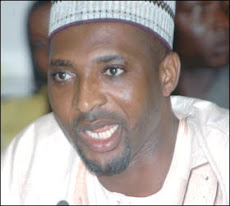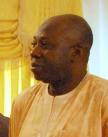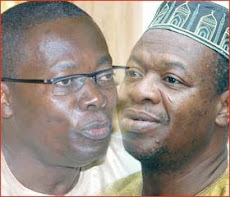By: Sheila Okyere
Ghana was ranked the 69th most corrupt country in the world this year according to Transparency International, making it the second year in a row. This unenviable position puts a question mark on whether Ghana’s governments’ promise to curb corruption is in fact a proposition to be taken serious.
Amidst many political endeavours to curb the cancer of corruption in Ghana, it still seems to retain its clutches on most sectors of the country. From government officials to chief executives and heads of educational institutions, corruption is steadily decaying our country’s credibility as a democratic nation.
Bribes and facilitation payments seem to be the norm. From the market seller paying the policeman at the barrier to the multinational firm executive paying the government official to speed up the process of their contract, it is deemed the way of life. Even doctors are found to be benefiting from life threatening situations... These kinds of practices are hindering the economic development of the country.
In recent years, Ghana has managed to preserve political stability and is a prime example of a democratic nation in Africa, but can the same be said about the approach to tackling corruption? Or have the governments and other culpable sectors become a lot cleverer at concealing their corrupt ways?
Every government talks of how important tackling corruption is and eradicating it is a prime policy, but the question is how many are actually successful with this and how many of the government’s own officials are not culprits themselves?
Though when asked, most would say that the public sector and government officials are the most corrupt, Global Integrity 2008 found that the majority of citizens of Ghana deemed the Police Service to be the most corrupt. Corruption in the police can range from individual officers taking bribes and unofficial payments, to evidence in major cases going missing for example, when a large quantity of cocaine was seized by the Ghana Police but never accounted for. The problem with cleaning up this sector is that the Inspector General of Police (IGP) is appointed by the president, so there is the fear that the position can be used as a political instrument for the ruling party.
Also it seems as though there is an inadequate procedure in place to formally complain about the police, which means that officers are rarely prosecuted, disciplined or dismissed. People rarely report corruption to the police through the criminal justice mechanism due to long bureaucratic procedures and a lack of legal protection for prosecution witnesses. The introduction of organisations such as Ghana Integrity Initiative (GII), Commission on Human Rights and Administrative Justice (CHRAJ) and the Serious Frauds Office (SFO) was meant to prevent individuals from going unpunished if found guilty of corruption. Over the years these organisations have been plagued with rumours that they have been systematically starved of funds and in effect, governments have adroitly turned those institutions into pawns while manipulating public feelings that they are fighting corruption. The Serious Fraud Office if funded adequately should by now have been well-established and supported to perform its legitimate functions. Instead, it appears to be falling prey to the ferocious political game that the party in power lures it into. The truth is that neither the SFO nor CHRAJ is effective as consequently, no cases of corruption have been prosecuted in the past 10 years through the criminal justice mechanism of the CHRAJ and the SFO.
US President Barack Obama said when he addressed Africa on his first sub Saharan, that the end to corruption is the key to unlocking Africa's potential. Aimed at potential leaders, he stated that "No country is going to create wealth if its leaders exploit the economy to enrich themselves, or police can be bought off by drug traffickers...No business wants to invest in a place where the government skims 20% off the top ... No person wants to live in a society where the rule of law gives way to the rule of brutality and bribery. That is not democracy, that is tyranny, and now is the time for it to end. Africa doesn't need strongmen, it needs strong institutions." GII, CHRAJ and SFO can take advice from President Obama and the way in which laws are enforced in the USA. Their law does not only bark, it bites very deep as it doesn’t matter who is implicated; the law will not exempt anybody who falls foul of it. That’s why their citizens fear the law as they know that they will not be spared. For instance, the case of the former Governor of Illinois, Rod Blagojevich and the former Congressman Jefferson whose corrupt deals reached Africa and Ghana and for which, he was convicted. Even officials at the White House face the full rigours of the law if they misbehave. The opposite seems to be happening in Ghana as the individuals that are entrusted with interpreting, enacting and enforcing the law are the first to flout it with impunity. The fear of the law seems to be missing in everybody and even though there are ostentatious designs on paper to fight corruption, which every government functionary openly refers to, the need to comply with the law seems to be absent. This casts some doubt about how determined Ghana is and if she is prepared to do the right thing to stem corruption and purge herself of greed.
Recent research shows that the majority of citizens are in fact willing to pay extra for corruption-free products. This is an indication that people are against corruption and that even though it is seen as a way of life; people are still reluctant to accept that not much can be done about it.
This is not to say that the purge can happen overnight; after all it is deeply embedded in numerous areas of the country, but steps taken genuinely in fighting this cancerous ‘disease’ can show the rest of Africa and the world that Ghana as a nation is an advocate for democracy and strong institutions - not only as a country that believes in free and fair elections but also one that believes that no citizen is above the law. Once that understanding is in place and a zero tolerance approach taken, striving for a country free of corruption may seem more achievable and realistic. President Obama struck the nail on the head when he called for strong institutions as enough to stem corruption. With this, individuals will not be tempted to indulge in it and that is how countries brave the storm and move forward. Ghana must move forward too and become a good example for the rest of Africa...
By: Sheila Okyere














No comments:
Post a Comment